
Short changes: Microdrama in the spotlight


Novel ideas: USG’s literary IP ambitions SA mulls impact of big players’ African rethink







































































































































































































Short changes: Microdrama in the spotlight


Novel ideas: USG’s literary IP ambitions SA mulls impact of big players’ African rethink








































































































































































































The ultra-shor orm storytelling medium has taken China by storm, becoming a US$5bn sector almost overnight. Will it be too big for Hollywood to ignore, with memories of the ill-fated Quibi still fresh? By
scuppered a potentially solid business proposition.

TJordan Pinto
here is an energy building around scripted shortform content once again as the ‘microdrama’ acquires enormous momentum in China and spreads across Asia. But after the swift and spectacular combustion of Jeffrey Katzenberg’s Quibi in 2020, are Western media companies still firm in their conviction that there’s nothing to see here?
Microdrama, characterised by fastpaced, concise, soapy storytelling (videos are usually one to two minutes long) has caught fire on platforms such as Chinese short video app Kuaishou and TikTok sibling app Douyin.
These vertical-video platforms are driving enormous consumption with bite-sized scripted stories typically revolving around romance, revenge and rags-to-riches takes. It has become a major money spinner almost overnight, with some estimating the sector generated revenues of around US$5.3bn in 2023. Projections suggest it could almost treble by 2027.
At a broader level, the trend has been driven by the global uptake
of ByteDance-owned shortform behemoth TikTok and US-based Snapchat, and the subsequent embracing of shorter video formats by YouTube (Shorts) and Instagram (Reels).
Emulating a trend with the trajectory of microdrama would typically be a nobrainer for Hollywood. But the major Western studios have been down this road before. In 2018, Katzenberg raised more than US$1bn to bankroll the launch of Quibi, with key investors including Disney, 21st Century Fox, WarnerMedia, NBCUniversal, Sony Pictures, Viacom, Liberty Global, MGM and Lionsgate, in addition to RTL Group, Entertainment One and ITV.
The streaming service, launched in early 2020, was billed as an app that would provide viewers with premium shortform content to watch when they were on the go. It got unlucky with the timing of the pandemic, but the fact other apps – particularly TikTok – exploded in that same period undercuts the notion that Covid-19
Well ahead of its launch, many were sceptical it would work. Those doubters were swiftly proven correct, and the service shuttered just six months after launch.
Many viewed Quibi as Hollywood’s last attempt at making a go of monetising shortform content. Smaller apps, including NBCUniversal’s Seeso and Verizon’s Go90, had also tried and ultimately failed, though they didn’t burn nearly as much cash as they flamed out.
But four years is a long time in entertainment, and the opportunities presented by shortform content are more apparent today than in 2020.
Jia Jian Ho, CEO and founder of Singapore-based shortform video platform Viddsee, says the growth trajectory for microdrama is and continues to be “astronomical” – and the phenomenon is beginning to spread west.
“Because most of the growth has only come from China so far, we’re really just at the start of where things could go,” he tells C21, adding that he is seeing growing adoption of scripted shortform apps in the US and Latin America.
Ho disagrees strongly with the idea that microdrama could be a fad that runs out of steam.
“There is such a big drive around shortform consumption, fuelled by things like YouTube Shorts and TikTok, and the solidifying of that viewing behaviour,” he says.
Launched in 2013, Viddsee is focused on premium (that most amorphous of terms) drama across fantasy, romance, family drama, action and revenge. It commissions and produces projects through its Viddsee Studios banner, as well as carrying some third-party shortform content.
The focus on premium storytelling makes Viddsee something of an outlier among the new crop of microdramafocused apps and streamers coming online.

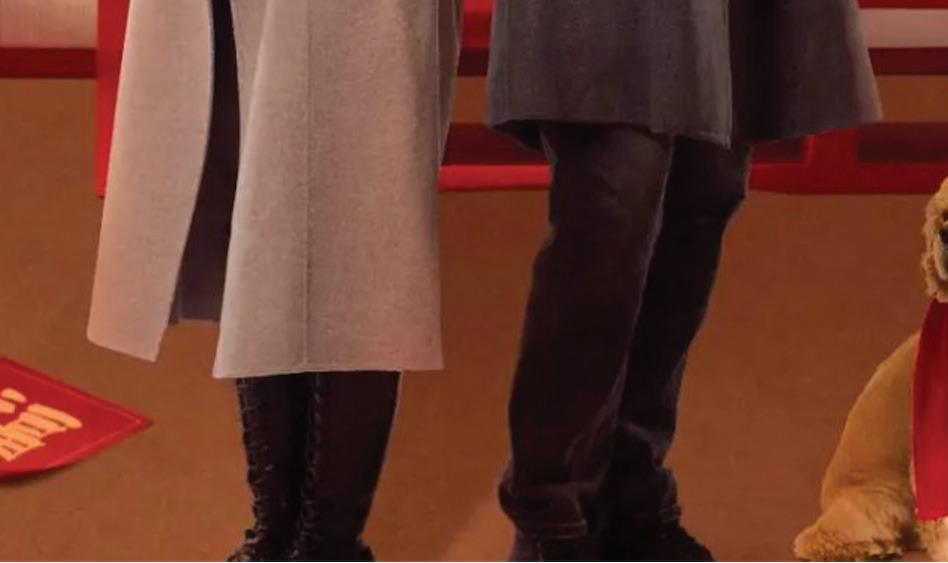
According to data from Appfigures, 66 new shortform drama apps launched in the first quarter of 2024. Some of the more notable ones to have sprung up in the past two years include ReelShort, which has gained meaningful traction in North America, My Drama and DramaBox.
Many of them, it is fair to say, are not focused on glossy production values. Indeed, fundamental to the medium’s success to date have been low production costs, fast turnaround times and the relative absence of known actors. In China, the fastgrowing medium has drawn criticism for being low-brow and even drawn the attention of the local content regulator.
Ho says microdrama is in its “cowboy era” but new investment is beginning to come into the space, bringing with it the ability to tell more ambitious stories.
“As the format gains popularity and proves there is actually a business model here, naturally there will be more investment in these projects,” he says. “We definitely see there could be more collaboration with bigger stars, higher production quality and diversification of the types of stories. There’s a long way to go and a big opportunity to grow it.”
However, there is no rush to inflate the budgets or the scope of the productions. Audiences are coming to microdrama apps for escapism, says Ho, and what keeps them coming back is the speed and bingeability of the storytelling. Indeed, one of the things that sank Quibi was that the level of investment was so vast it needed to

achieve instant success, with no real opportunity to grow or gradually find its audience.
What’s more, the definition of ‘premium’ has been somewhat redefined in the social media era. Viddsee targets a demo of 18-35s, which Ho says is a generation that has grown up on YouTube rather than traditional linear television. “From a youth perspective, their perception of premium is very different to how a more mature age group sees it,” he says.
The rise of these platforms also creates the opportunity for interesting
partnerships with more traditional players. Ho notes that Viddsee is open to partnerships with streamers, broadcasters and companies “looking at emerging models to create engaging content.”
mistaken identity, love after marriage, comebacks and pregnancy and babies.
A key aspect of microdrama apps is what UK-based Jo Redfern, who specialises in online content and platform strategy for IP, brands and right holders, refers to as the “gamification” of content.
ReelShort, for example, lets users earn ‘rewards’ in the form of virtual coins when they use the app and watch certain videos, as well as monetising through micro transactions.
“Quibi did pick up on something. It zoned in on shortform storytelling but it wasn’t very well executed in the sense that, for me, the key thing is the gamification around it,” says Redfern.
So is microdrama a trend that producers are, or should, be looking to explore?
“So far I have seen very little evidence of producers and studios identifying it as an opportunity, but I think it is,” says Redfern. “We will see smaller producers, younger producers and creators starting to think in this way. Whereas more established producers think of content creation in a way fit for broadcast, these younger creators have been brought up with shortform video on social platforms, so they will think naturally about telling stories in a way that suits that channel.”






“ So far I have seen very little evidence of producers and studios identifying [microdrama] as an opportunity, but I think it is. We will see smaller producers, younger producers and creators starting to think in this way.
Jo Redfern


ReelShort, which was developed by LA-based Crazy Maple Studio and owned by publicly listed Chinese digital publishing company COL Group, has already made something of a splash in North America, climbing to the top of the download charts in the US in November 2023. At the time of writing, the roster of US-made shortform dramas in its ‘most trending’ section include The Virgin & The Billionaire, The Heiress Strikes Back, Falling for My Divorce Lawyer, OMG I Got Married in Vegas, Pregnant by My Ex’s Dad and In Bed with Your Lies. Story genres listed on the app include enemies to lovers, redemption, romcom, love at first sight,

the European and North American

Redfern adds that it’s possible the European and North American industry sees an “explosion in this kind of storytelling in the next two or three years.”
Asked whether some of the major streaming players, like Netflix or
streaming players, like Netflix or Amazon, could look to introduce gamification into their own content strategies, in a similar way that Roblox or ReelShort has, Redfern says it is a possibility.
has, Redfern says it is a possibility.

“Gamification helps


because it’s a motivator to watch more,” she says. “They’re not levers being pulled by [the major streamers] right now but, knowing that those are exactly the levers

says. “They’re not by [the major the levers



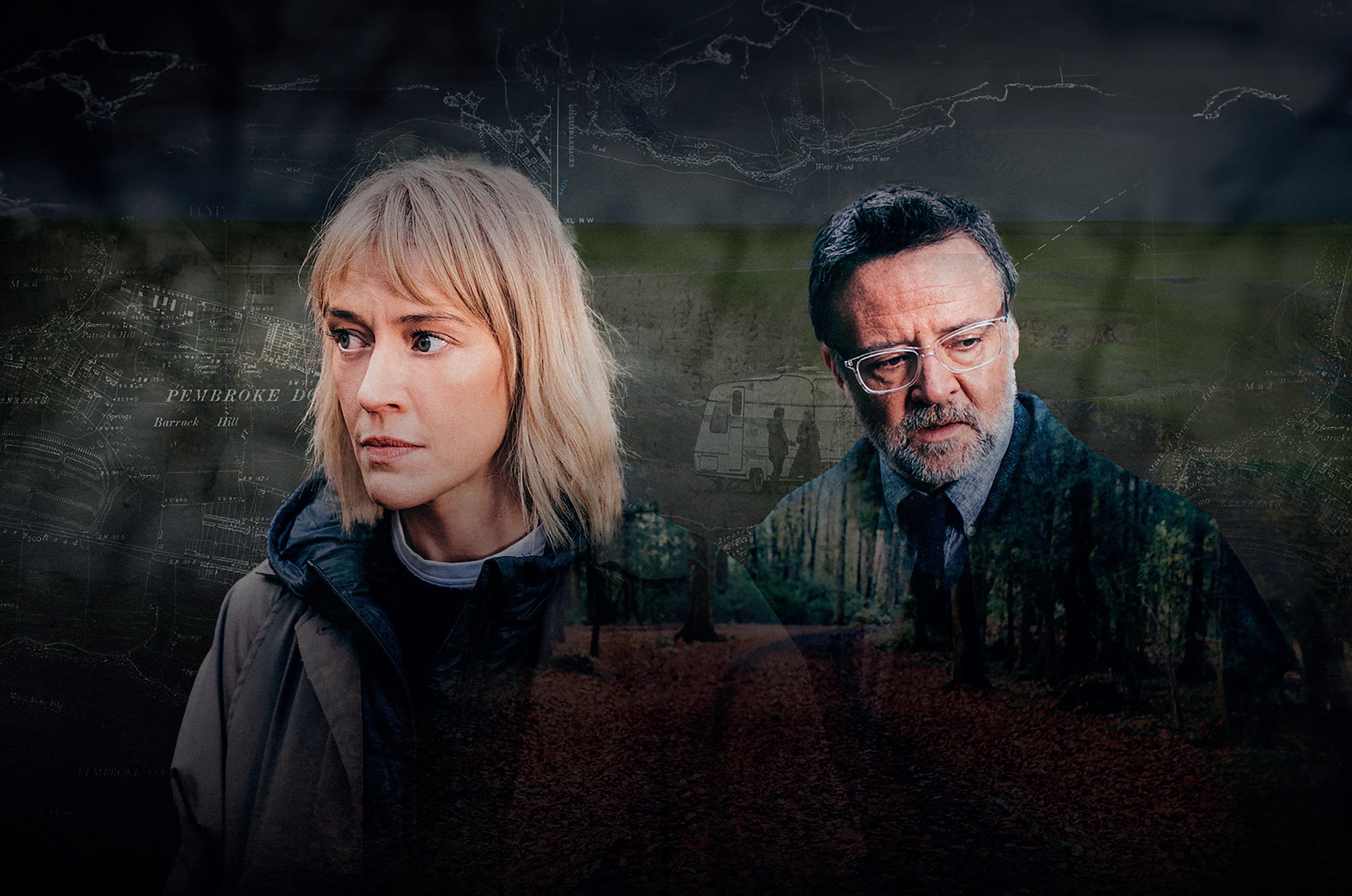




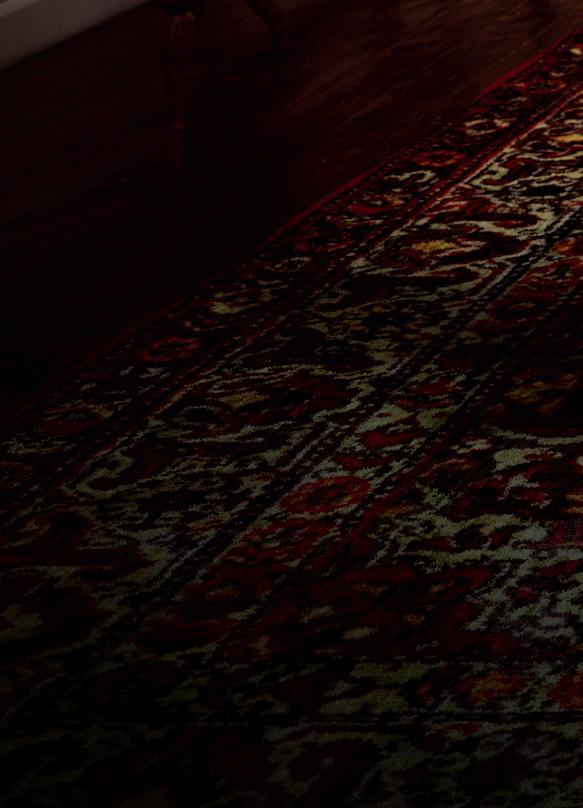








The Virgin & The Billionaire from ReelShort, which allows users to earn rewards for using the app
ReelShort uses to get people watching more content, I’d be very surprised if they weren’t looking at it as well.”
Gave Lindo, the former head of content programming for TikTok in North America, says shortform scripted just might not be a trend that Western audiences warm to.
Lindo, who is currently an investor and advisor in the creator economy, left his role at TikTok in March. Asked whether he had seen the microdrama phenomenon cross over to North America, he says: “In the West, no. Not every trend is a global trend –some trends are regional, or they’ll take so much more time to materialise than we think.”
In terms of genres, former CBC exec Lindo says sketch comedy is the only scripted format that has



to brave this format that hasn’t really had a lot of value in the West.”
Where Lindo is more bullish is about the potential for TikTok to act as a testing ground for longer-form programming. Perhaps the best example of such an adaptation is Who TF Did I Marry?, a series of TikTok videos from Tareasa Johnson (aka Reesa Teesa) about her reallife marriage to a man she says is a pathological liar. The TikTok videos, which spanned 50 posts and more than eight hours, went viral earlier this year. It is now in development with Disney-owned studio ABC Signature,
“ If, for whatever reason, Western audiences are suddenly into this shor orm scripted, there’ll be a lot of that content made very quickly and everyone will be clamouring and fighting each other to figure out a way to showcase it.
Gave Lindo
shown sustained resonance on social platforms to date in North America. “But highly scripted, stylised drama in shortform, I haven’t seen any examples of that working outside of Asia,” he notes.
That’s not to say it couldn’t happen, but Western audiences would need to demonstrate a major demand for this kind of content before the streamers or platforms chose to embrace it in a meaningful way. It would also represent something of a departure from what such consumers have typically migrated to in terms of scripted content.
“If, for whatever reason, Western audiences are suddenly into this shortform scripted, there’ll be a lot of that content made very quickly and everyone will be clamouring and fighting each other to figure out a way to showcase it. I’m not saying it will never happen, I just don’t see what the appetite is. Or I don’t understand what cultural shift would need to happen for companies suddenly, out of nowhere,
with actress and comedian Natasha Rothwell (Insecure, The White Lotus, How to Die Alone) attached to star and executive produce.
As its business model has evolved, TikTok has increased the maximum length of its videos from two minutes, to five, then 10 and now up to 60 minutes. Developing series based on very short videos is challenging, says Lindo, as you don’t have much source material to work with. TikTok’s extension of its maximum video length is giving creators more scope to tell stories.
“In terms of true scripted longform, we’ll see more of it,” says Lindo. “As people start to use social platforms less just for shortform and more for longform narrative, there’s a lot in there to develop and pull from to create a TV show.”
Vania Schlogel, founder and managing partner of entertainmentfocused private equity firm Atwater Capital and chairwoman of the board of Leonine Studios, says that

Hollywood studios may need to look outside of their current business models to build more interactivity into their offerings if they are to appeal to younger audiences.
By interactivity, Schlogel means that the younger generation – which will, in little over a decade, be household decision makers – are growing up on Roblox and have certain expectations when it comes to customising and interacting with their media.
“It’s almost a foregone conclusion that when that generation ages up, that’s where we’re going to have that wave of interactive content really ushered in,” she suggests.
It is part of a bigger question that Schlogel is asking herself: what is the next major phase in how content is monetised?
“It was subscription streaming. Now advertising-supported streaming. What’s the third wave? Is it ushered in by greater interactivity with content?” she asks.
content, I have a hard time believing

unique monetisation methods akin to
Schlogel notes that in mobile gaming, interactivity was a major trend around five years ago but has since died down slightly. “Given how the younger generation interacts with content, I have a hard time believing there won’t be more interactivity with content in general. And more interactivity with content lends itself to unique monetisation methods akin to gaming,” she says.


So could a major Western studio or streamer have another go at cracking shortform content? Viddsee’s Ho doesn’t think it is out of the question.










“They may indeed take an interest in

grow globally. However,







much opportunity right now to power really
“They may indeed take an interest in emulating the microdrama trend as the demand for shortform content continues to grow globally. However, the approach might be cautious due to the various challenges Quibi faced,” says Ho. “But there is so much opportunity right now to power really good stories in the microdrama format. It’s a wide-open space.”





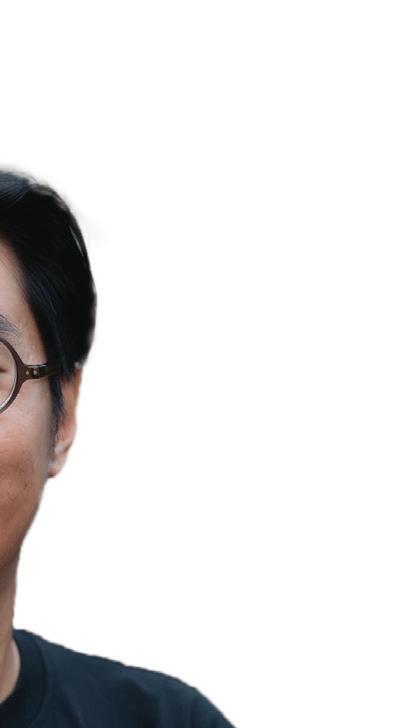








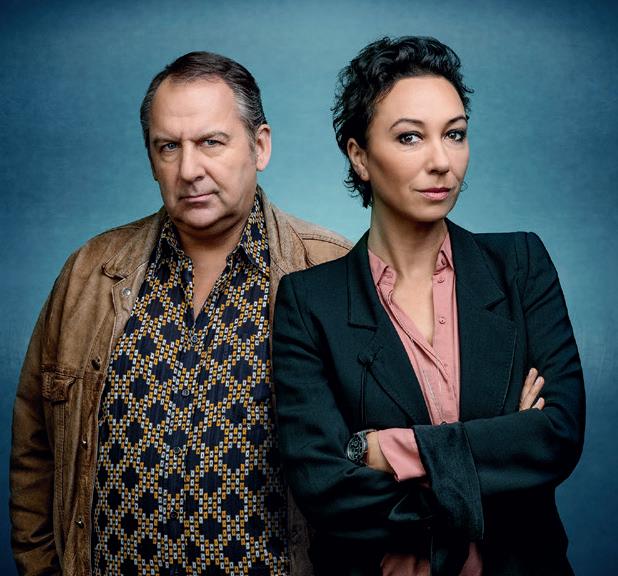






































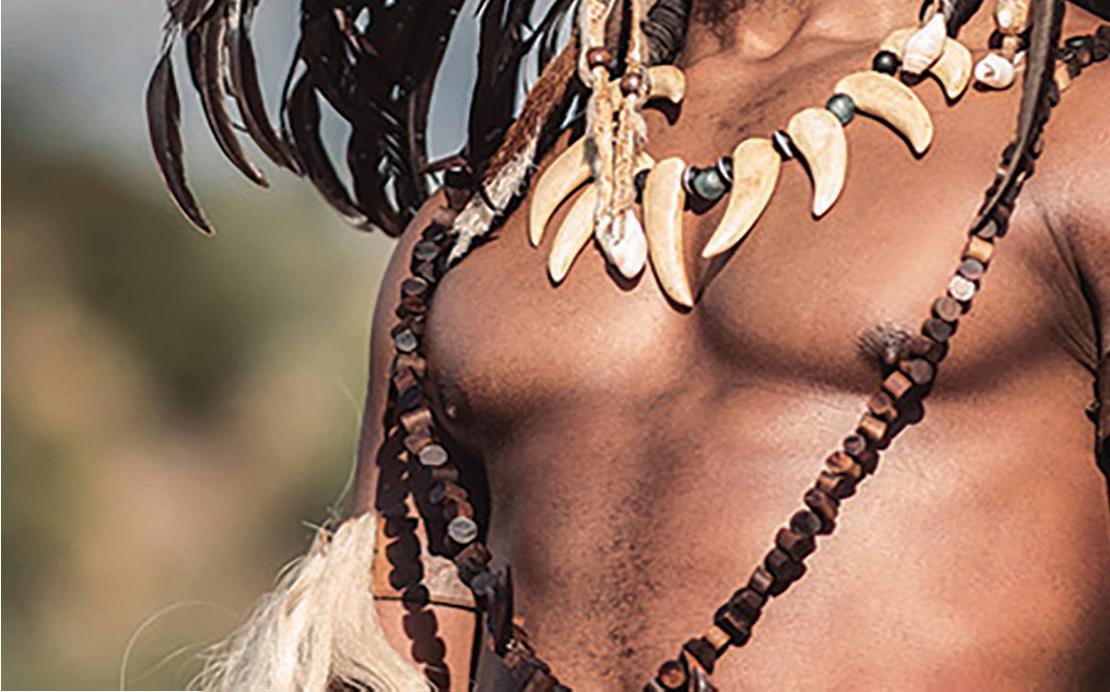

South Africa-headquartered pay TV and streaming group MultiChoice has seen numerous international players attempt to challenge its position of dominance since the streaming boom, commissioning headline-grabbing and big-budget local originals to sit alongside their Western-made series and films.
This resulted in budgets for original productions shooting up and a scramble for talent – a situation Nomsa Philiso, CEO of general entertainment at MultiChoice, says has settled down now the challenging economics of streaming have been laid bare.
“This business has a way of equalising itself. Of course, when you come into a territory you have big budgets thrown around. But you soon find out what happens. We’re at that point now where everything is level,” says Philiso.
“Now you won’t hear producers telling you about the better budgets in dollars. It was a blip where we had a lot of producers move to other streamers because the budgets were better and ‘the future was brighter.’ But you know the economics of streaming: you can throw in all the money but the margins are small.”
Indeed, the trend in 2024 has been for many of these platforms to abandon previously ambitious expansion plans in Africa to focus on Europe and North America in the face of economic uncertainty.
Most notable of these was Amazon, which despite being one of the world’s wealthiest companies, sent shockwaves through local production communities when it dropped its African content team and ended its short-lived investment in originals from the region.
Others to have jumped ship include BritBox, the international streaming service from BBC Studios, which withdrew from South Africa on August 30.

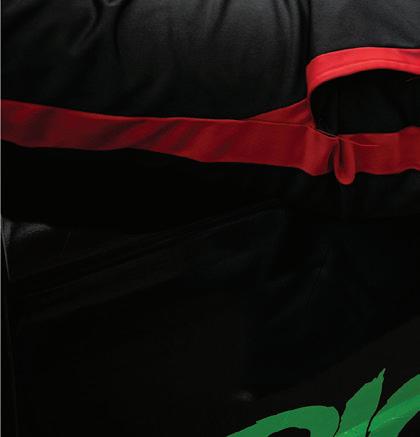



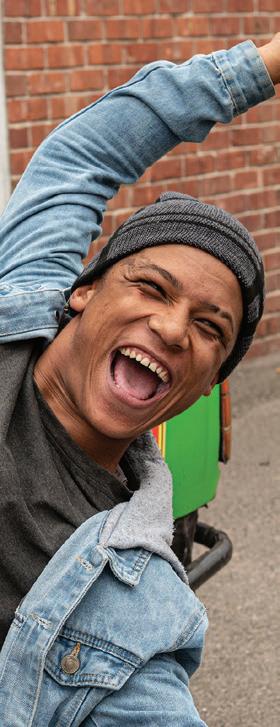









While many major international players have backtracked significantly on their ambitions in Africa this year, others have expanded theirs, with huge ramifications for the South African market. By Nico Franks

Meanwhile, Liam Keelan, Disney’s senior VP of original productions in Europe, the Middle East and Africa, was non-committal when asked about the streamer’s plans for originals in Africa at the recent Edinburgh TV Festival.
“At the moment we’re focusing on the main European markets. We’re still quite young in our journey. It’s not to say we never would. There are European markets where we are active but haven’t commissioned yet. It’s about timing, really,” Keelan told delegates.
Following the Amazon news earlier this year, Nigerian TV producer Mo Abudu, CEO of EbonyLife Group, slammed the international streamers and studios for cutting back on African production, accusing them of “a lack of respect” for the continent.
“In the face of these challenges, it is imperative that we, as Nigerians and Africans, rise above and build our own infrastructure, creating and serving our markets with pride and resilience. I firmly believe in the potential within us and, in the face of challenges, see opportunities for growth and self-reliance,” said Abudu.
Not all international players have walked away from Africa, however, and Abudu had a message to these players.
“To the international organisations that recognise our worth, we extend our heartfelt appreciation. Your decision to stay, partner and collaborate with us is a testament to the shared commitment to not only growing the continent today but also for the generations that will follow.



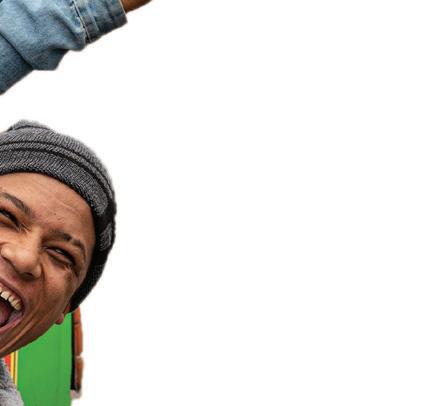

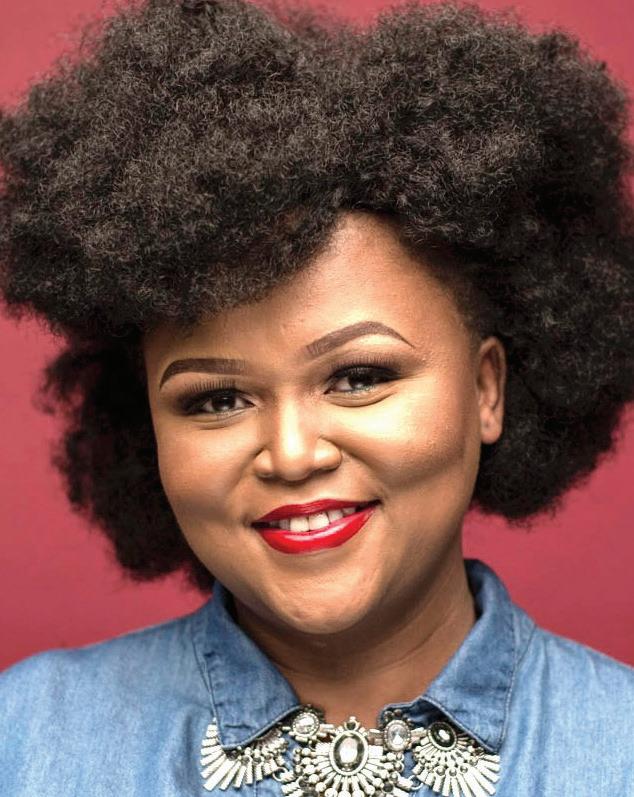

“Let us embrace the challenges, celebrate the opportunities, and collectively contribute to the thriving and resilient future of our beloved continent.”
opportunities, and collectively contribute to the thriving and resilient future of our beloved continent.”
Meanwhile, there have been major developments at MultiChoice since US cable giant Comcast bought into the African company’s SVoD service Showmax last year, prompting a revamp of the platform.

“The first quarter of this year was devastating for the local industry in South Africa. A lot of producers had put a lot of hope in these new studios coming into town and were wooed by promises made about building something together.


Then France’s Vivendi committed to acquiring MultiChoice in a deal that values the company at around US$3bn and gives the Canal+ owner greater access to a continent with the world’s fastest growing and youngest
Then France’s Vivendi committed to acquiring growing population.
Busisiwe Ntintili Sidewalk Productions



Formed in South Africa in 1985, MultiChoice expanded across Africa in the early 1990s with packages including live English football matches and local shows. Its assets
MultiChoice expanded across Africa







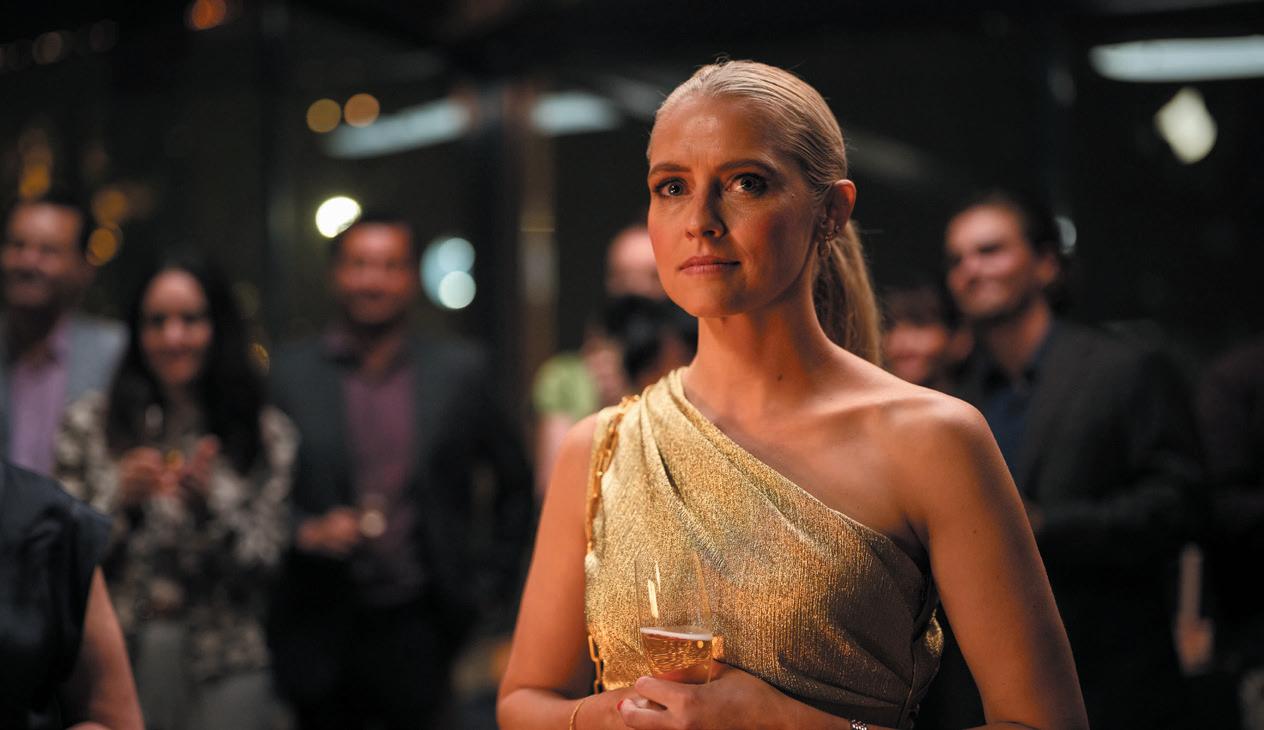
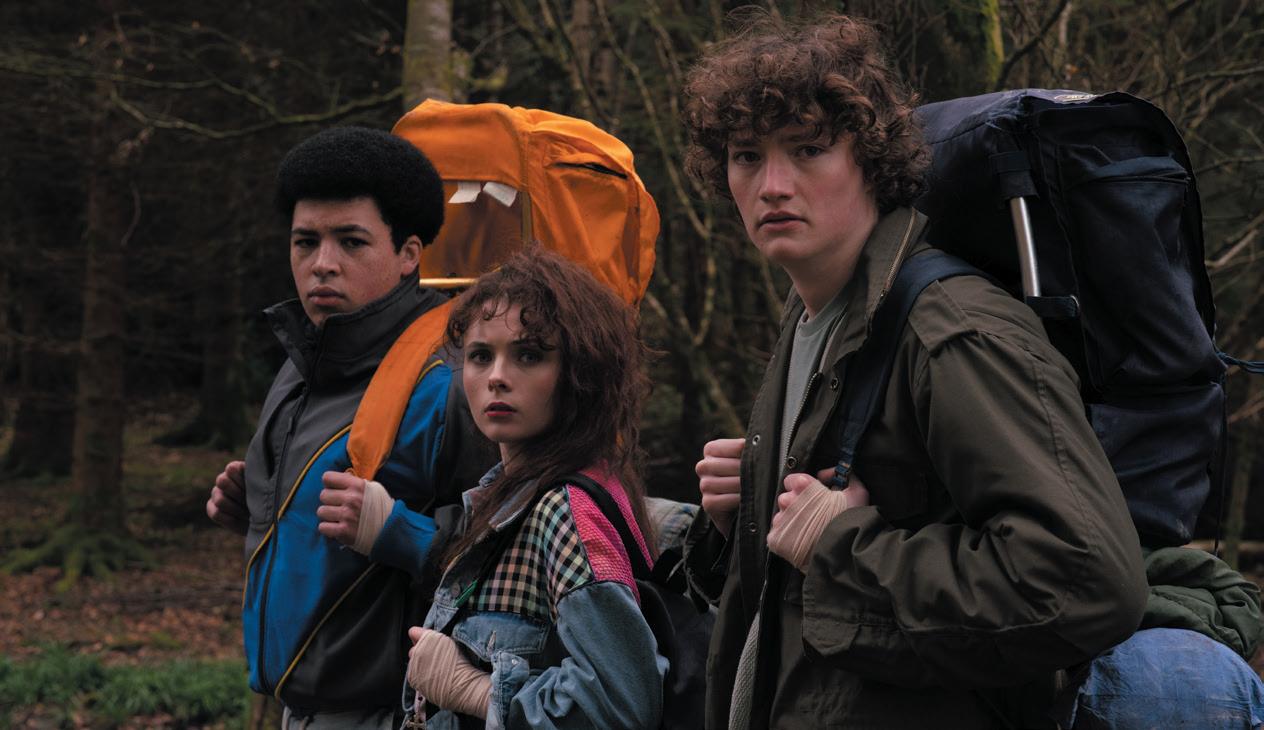








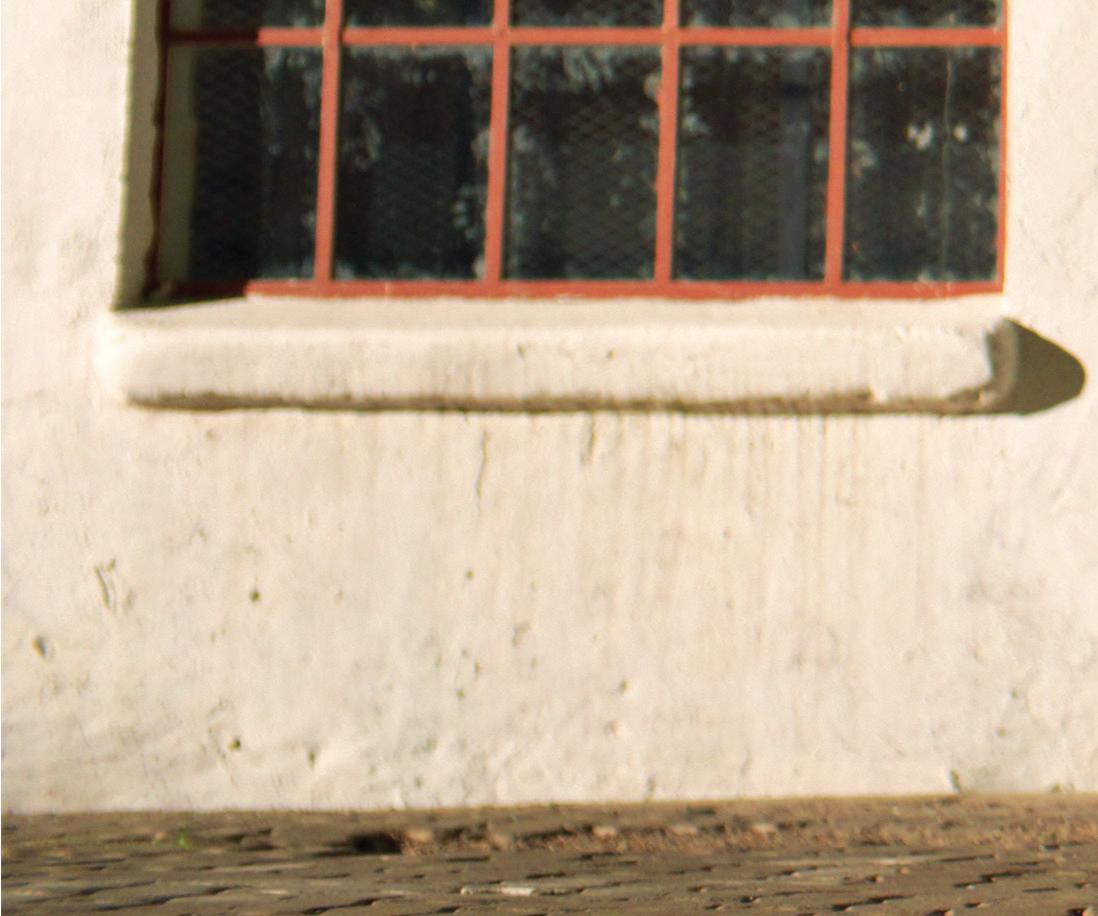

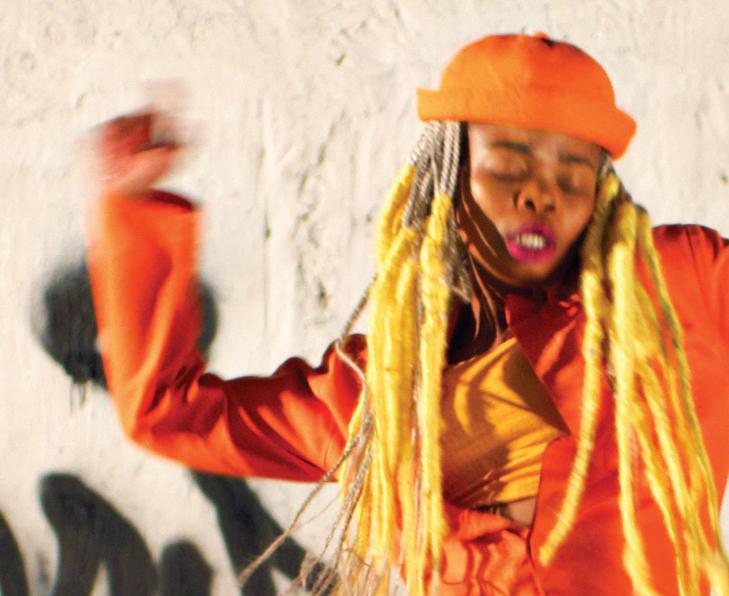
include major satellite television DStv, digital terrestrial TV service GOtv, sports broadcasting network SuperSport and premium TV channel M-Net.
As the largest producer of African content globally, MultiChoice’s recent high-performing originals include Shaka iLembe, Queen Modjadji, Spinners, Wyfie, Catch Me a Killer and Adulting
Philiso points to Showmax’s recent acquisition of the forthcoming Nigerian superhero animated series Iyanu, which it will launch in 44 African countries next year, as an example of how it plans to ensure African stories are not only told by Africans, but are also available to watch on the continent in future.
“African stories are finally being told largely by Africans, but it’s also time for African audiences to be among the first to see African stories, as a common courtesy,” said Philiso in the press release announcing the acquisition.

“Even today, an Oscar-winning film like Nowhere in Africa is available, well, nowhere in Africa. There are numerous examples like that, but stories about Africa should be told not just with Africans but to Africans.”
Philiso says she couldn’t stand by and leave landmark series Iyanu – commissioned out of the US by Warner Bros Discovery-owned Cartoon Network and its streamer Max – to be left inaccessible to African viewers due to Max’s unavailability on the continent.
Created by Nigerian producer Roye Okupe, founder of YouNeek Studios, the series highlights e orts towards ‘storytelling sovereignty,’ where previously underrepresented creators are given control of their narratives, stories and histories. However, if a show like Iyanu isn’t made widely available in African markets, it highlights an ongoing power imbalance between Africa and other continents.
“We realised we’re behind the curve in terms of us being the ones that tell our own stories. It’s something we’re being very intentional about to accelerate. But we also have issues of access in Africa, around things like data streaming and electricity,” says Philiso.
“Where it’s possible we try to make sure that the o ering is available in many forms and is easy to access. [MultiChoice] is not very strong in animation, so we have to partner smartly with companies that align with our vision,” adds Philiso, who cites currency fluctuations between African countries as among the challenges facing the company.



We’ve seen great success. The stories are working here; they are translating to broader audiences around the world. There are so many stories we haven’t told here in Africa yet. We want to be a part of that.”
Netflix debuted its first African original, Queen Sono, in 2020 before commissioning originals such as Blood & Water, Beauty Savage, Far From Home, Blood Sisters, Unseen, Young Famous & African, Country Queen, King of Jo’burg and The Brave Ones. More recent commissions include a South African version of reality format Love Never Lies, with BBC Studios-owned production company Rapid Blue, and numerous South African films.
C21 understands some local producers in South Africa feel that for all Netflix’s commissions, the fact it has no physical presence anywhere in Africa and its team operates from an EMEA HQ in Amsterdam is a problem.
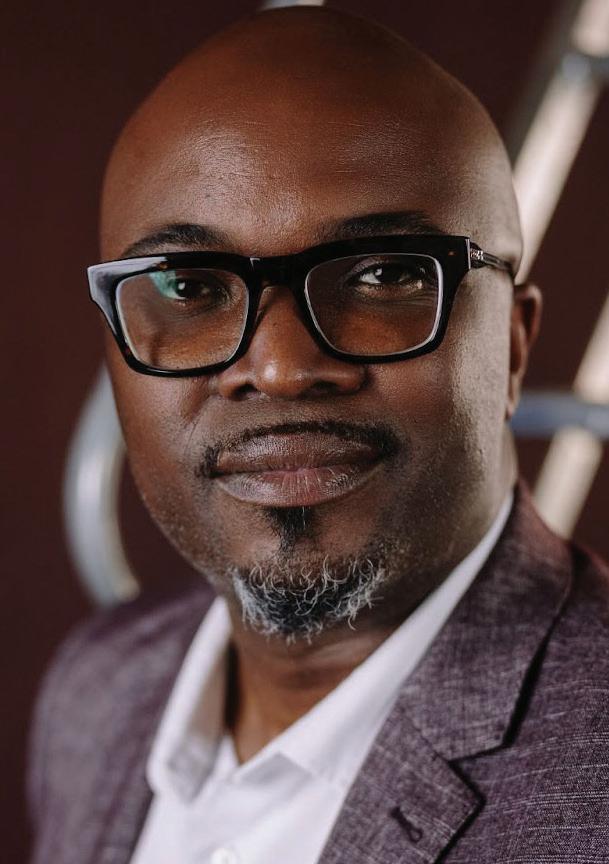
This comes against a backdrop of sti competition from Netflix, which has recently rea rmed its commitment to sub-Saharan Africa following fears among local production communities it might ‘do an Amazon.’
Speaking to C21 at Mip Africa in Cape Town in September, Ben Amadasun, Netflix’s VP for the Middle East and Africa, said the global streamer remains thoroughly committed to working with creatives across the continent.
“We’ve invested significantly across Africa over the last few years, from South Africa to Nigeria, and this is going to continue to increase as we do more, bigger and better productions,” Amadasun said.
“We’re here for the long haul. We believe in the market.

“We’re here for the long haul. We believe in the market. We’ve seen great success. The stories are working here; they are translating to broader audiences around the world. There are so many stories we haven’t told here in Africa yet. We want to be a part of that.
Ben Amadasun Ne lix
Netflix was once famed for giving execs decision-making autonomy when it comes to local commissioning, which allowed them to move quickly and roll the dice on risky ideas that other commissioners would dither over. Many of these paid o , many of them didn’t. More recently, as part of its e orts to rein in spending, Netflix has embarked on a course correction that has seen it commission more conscientiously, mitigating risk while attempting to appeal to as large a base as possible in many markets.
Producers in South Africa and Nigeria were not immune to the unceremonious axing of projects that occurred in numerous markets. Together with the Amazon news, the rug was well and truly pulled from local producers’ feet, says producer Busisiwe Ntintili, co-creator of dancethemed Netflix drama Jiva!.
“The first quarter of this year was devastating for the local industry in South Africa. A lot of producers had put a lot of hope in these new studios coming into town and



“This business has a way of equalising itself. Of course, when you come into a territory you have big budgets thrown around. But you soon find out what happens.
Nomsa Philiso MultiChoice
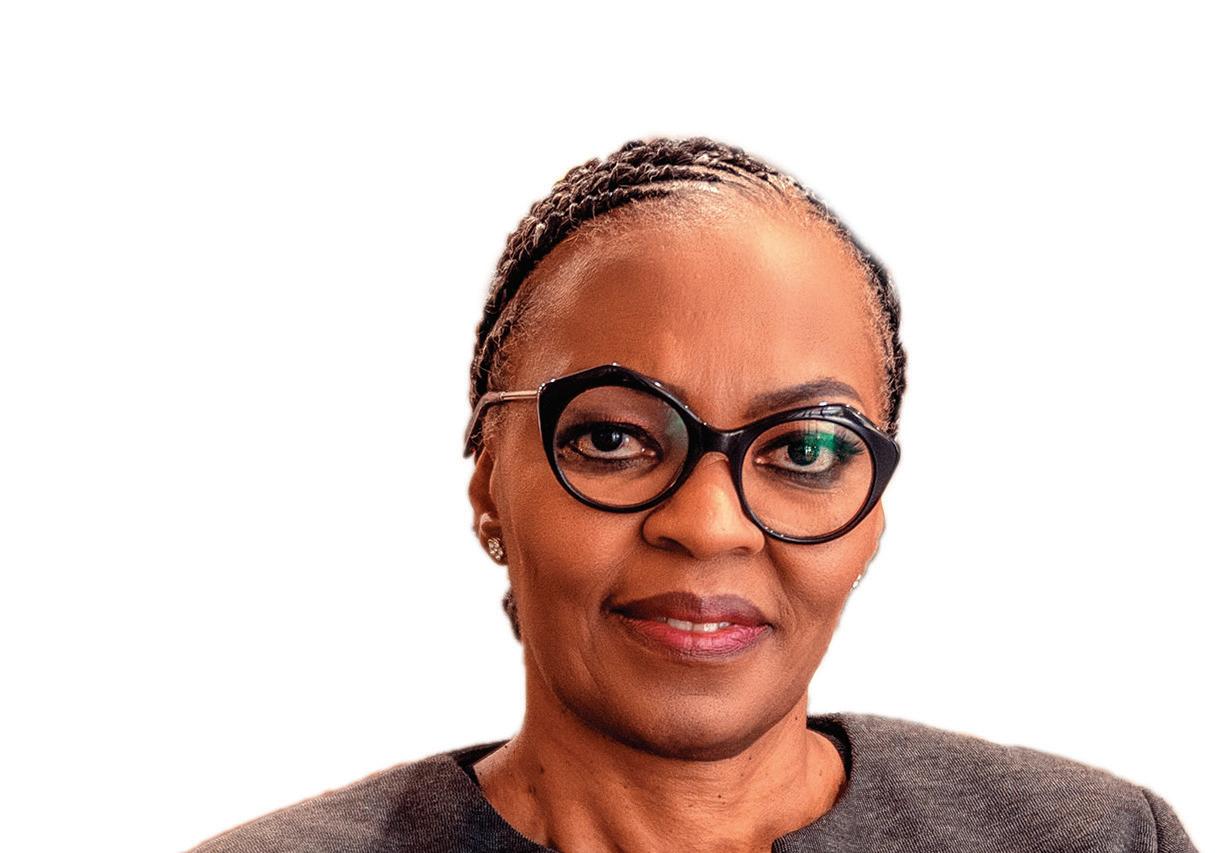


were wooed by promises made about building something together,” says Ntintili, who is now developing a highoctane thriller with a local broadcaster in South Africa.
A re-calibration has had to take place in South Africa, with many producers taking measures to ensure their survival while others remain in precarious positions, adds the writer, who is co-founder and executive producer of Sidewalk Productions.
One consequence of the arrival of international streamers in markets such as South Africa has been to shock local buyers into stepping up their activities to compete with the new players and retain talent. Ntintili agrees with MultiChoice’s Philiso that local producers have realised the grass isn’t always greener.
“To survive we have to have local broadcasting. Yes, we live in a global world, but once you have big tech companies moving into entire territories it does something weird to the integrity of the storytelling,” says Ntintili, who praises recent MultiChoice productions such as Shaka Ilembe, Queen Modjadji and Wyfie for their authenticity.
Nicola van Niekerk, head of premium content and coproductions at MultiChoice, believes that international streamers aren’t making content with the cultural specificity that African viewers demand.



Without the lucrative residuals baked into most TV deals in other work-for-hire markets such as the US, there are concerns African creatives are being exploited. Masseka Game Studio founder and tech entrepreneur Teddy Kossoko told C21 last year he had seen evidence of US and European distributors and streamers taking advantage of creators in Africa by locking them into “abusive” low-value contracts that tie up rights to their IP. Ntintili, who attended SeriesMania in Lille earlier this year, says: “Netflix and MultiChoice are going head-tohead and no one else is really coming close. Canal+’s buyout has come as a surprise, but it’s clear they want to be a big player in Africa, having already had a presence in the French-speaking markets. If they can combine that with the English-speaking markets, who knows what that will bring.
“Some are excited, some are nervous about another foreign entity coming into the African continent and what that means. Are we looking at a situation where the new colonialism is a colonialism of content? These are questions we have to ask ourselves. Business is business and capitalism is capitalism. Most people only have their own interests at heart.


At Mip Africa, MultiChoice announced romcom My Fairytale Wedding, which is predominantly in English but mixes in indigenous Nigerian languages, plus an upcoming adaption of comedy hit The O ce, primarily in Afrikaans.
“Africa was Amazon’s side hustle and it’s one of Netflix’s side hustles,” she says. “But for us at MultiChoice, the African continent is our business and we won’t cut back.

“Netflix doesn’t make a lot of vernacular-language content. Other broadcasters or platforms come here to produce English-language content, cast a few South African actors, then assume that content will work. However, generic programming like that doesn’t speak to the hearts of our African audience.


“It’s good to have competition and have global players. But as Africans, we need to be creating our own platforms as well. That is the future, whether it means creating studios or distribution pipelines. People underestimate the amount of wealth that is in Africa. There is an immense amount of wealth here. But how do we redirect it to the right places?
“The creative economy hasn’t been taken as seriously as traditional industries like mining. It’s about educating investors about the opportunities that exist in the creative economy.

“For example, there are more than 300 di erent tribes in Nigeria alone, each with its own culture, language and nuances. So all across Africa, we divide the markets up and service them specifically.”
“For tribes in Nigeria alone, each with its own culture,


“There are going to be some interesting things combining investment with technology and young people doing interesting things coming out in the next five to 10 years. That makes me excited,” she adds, pointing to the vibrancy of film and TV coming out of countries such as Ghana, Senegal and Kenya.



For Ntintili, the African media market remains an “untapped goldmine,” waiting to be potentially explored by international players. But that word ‘explored’ could so easily be interchanged with ‘exploited,’ given the long and dark history of Western interference in
For Ntintili, the African media market




But that word ‘explored’ could so easily be Africa.
For Ntintili, trans-national collaboration between African creatives will be key to the future of the media sector in South Africa and the continent. By ensuring those who mine the storytelling potential of each country have roots that lead back to the continent, a new era of potential cultural colonialism can be avoided.

With additional reporting by Thinus Ferreira and Neil Batey.




Defining the gold standard for excellence and achievement in International TV and Audio programme making.










The award ceremony will take place on Monday 2nd December at Kingʼs Place in London, hosted by award-winning comedy writer and performer, Sophie Duker. www.rosedor.com




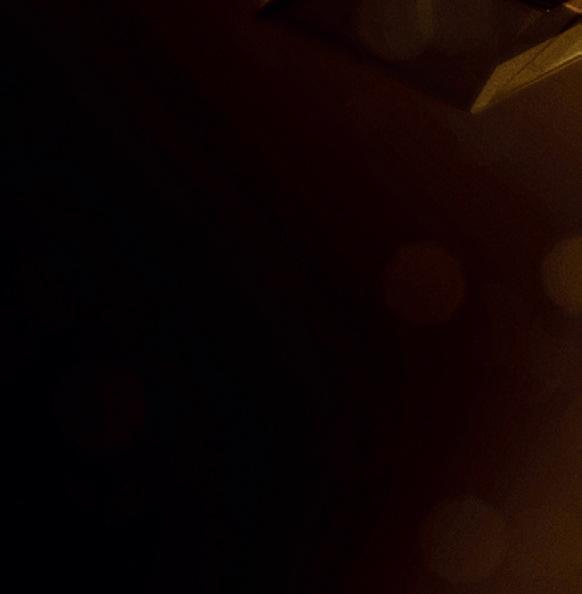


















As the daughter of a librarian, Beatrice Springborn, president of NBCUniversal (NBCU)-owned Universal Content Productions (UCP) and Universal International Studios (UIS), developed a deep love of books from an early age.
It’s unsurprising, then, to learn that Springborn has been involved in many a successful book adaptation during her career, which has included a six-year run at Hulu where she developed a creative strategy based on strong book-based IP.
This led to high-profile adaptations including The Handmaid’s Tale, Normal People, Little Fires Everywhere, High Fidelity, The Looming Tower, Nine Perfect Strangers, Shrill and Conversations with Friends
Since joining Universal Studio Group (USG) in 2020, Springborn has continued that strategy as part of her stewardship of all aspects of UCP and UIS’s slates, with a primary focus on growing their global production output while exploring IP beyond books, reporting to Pearlena Igbokwe, chairman of USG.
As well as wholly original productions, UCP’s credits include projects based on true crime podcasts (Dr Death) and comic books (Resident Alien, The Umbrella Academy).
London-based UIS, meanwhile, houses production companies including Carnival Films, Monkey, Matchbox Pictures, Working Title Television and Heyday Television, with productions including One Day on Netflix as well as NBCU-owned Peacock’s Apples Never Fall and The Day of the Jackal, all of which are based on literary IP.
Springborn credits book fanatic Jordan Moblo,




Universal International Studios boss Beatrice Springborn and Dinner Party Productions’ Sue Naegle discuss what it is they look for when developing literary IP for the small screen and why books can be an antidote to social media overkill. By Nico Franks




“ People love television. It will continue to be made and will continue to be enjoyed. How much of it is made, what it looks like and in which countries and in which configurations is yet to be completely determined.
Sue Naegle
Dinner Party Productions
executive VP of creative acquisitions and IP management at USG, who joined the studio from Netflix in 2022, with finessing the group’s development strategy across everything from newspaper articles to TikTok videos.
“Jordan’s group really identifies things very early. And they’re also great because they’re not just
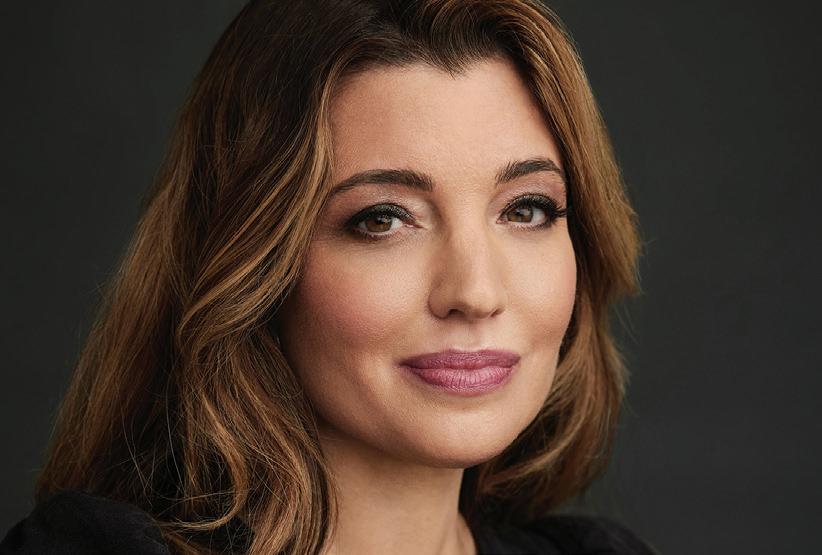
“ Many of the projects I’ve worked on that have been successful were based on books and were born out of a great relationship with the author. We’re very open to having authors involved in the room.
Beatrice Springborn
Universal International Studios
chasing the hot thing. They’re looking at back titles, things that have come out of option and features, things that may have been optioned but didn’t get developed or weren’t developed well, and we’re going to redevelop them. They have their finger in every part of the IP world,” says Springborn.
Despite the trend for the optioning of viral


BIOGRAPHY:
UCP’s comic book adaptation The Umbrella Academy



stories on social media, Springborn emphasises what good-old-fashioned literary IP can bring to a healthy development slate.
“Many of the projects I’ve worked on in the past that have been successful were based on books and were born out of a great relationship with the author. A good, open relationship with the author is not something every studio or network does well,” Springborn says. “We’re very open to having authors involved in the room.”
However, this doesn’t amount to giving the author carte blanche when it comes to the development process, the exec adds.
“The author has to be willing to do an adaptation and let go of what the book is, or at least be open to expanding it beyond that world. Sometimes authors will write a draft, or we have authors co-writing. And we have authors who don’t want anything to do with it or want the adaptation to be incredibly different from what the original was,” says Springborn.
Among UCP’s upcoming projects is a series adaptation of Chris Whitaker’s latest novel All the Colors of the Dark, a collaboration with Today cohost Jenna Bush Hager’s Thousand Voices and Sue Naegle and Ali Krug’s Dinner Party Productions (DPP).
The latter company has an overall deal with UCP, which also has a first-look deal with Thousand Voices, whose founder Bush Hager has an influential book club that picked out All the
Colors of the Dark for its members in June.


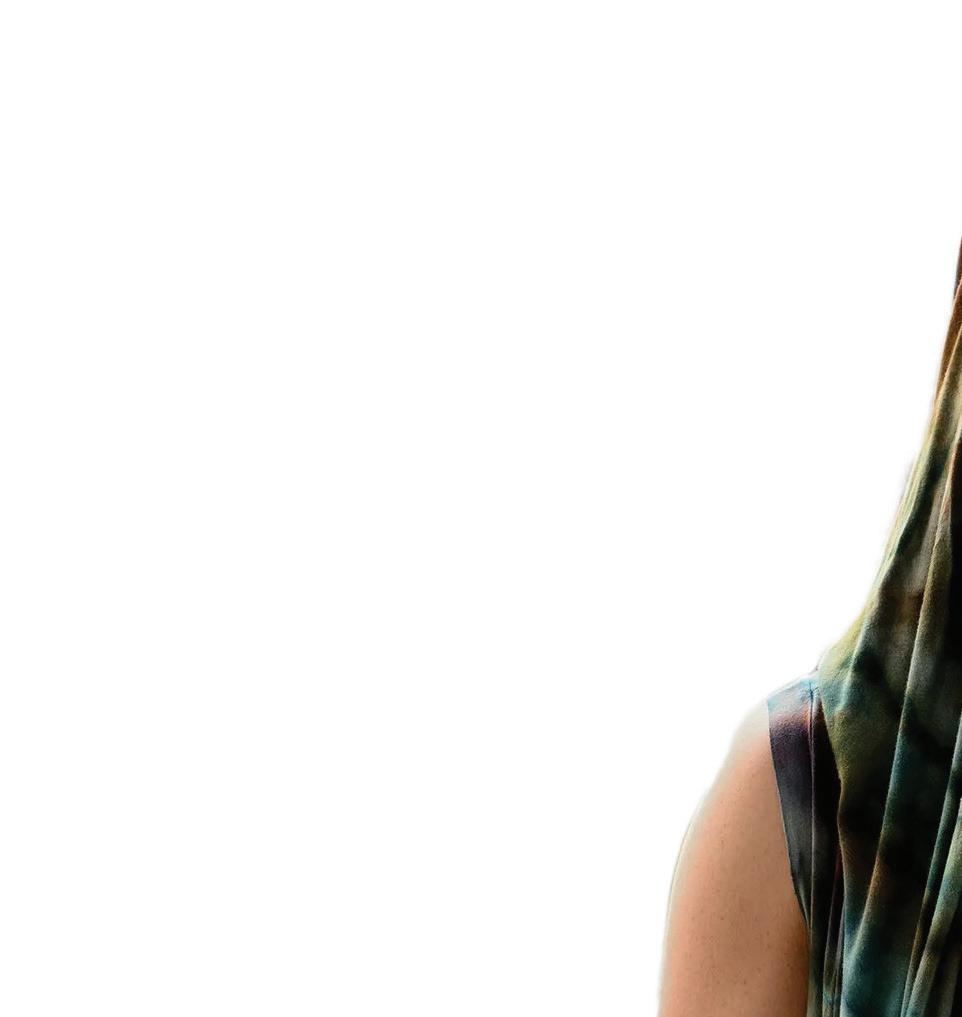


media overkill and Naegle admits reading books is her favourite part of her job as a producer, as she targets books with an existing audience that show worlds not seen on screen before.
“Mostly I’m looking for a strong point of view from the author and a way to work with a writer. You’re inside the character’s heads and many times the challenge is making the internal side of a book external. A certain skill is required,” says Naegle.
While the All the Colors of the Dark deal is an example of USG’s creative acquisitions and IP management team swooping on a novel ahead of its publication, Naegle says she also keeps an eye out for books long forgotten by the bestseller lists.
“I look both ways. Sometimes I look back at books that were very influential to me growing up with
that requires not letting things even subconsciously get into the way we develop.”
“It is about bucking trends,” Naegle agrees. “It’s to not be conditioned by what everyone else is thinking or doing. Of course, TikTok specifically can be very helpful for clips of what happened at the Democratic National Convention or helpful cleaning hacks, which I personally love. But too much of it and you start to see same, same, same, same. And the truth is we should be encouraging independent thought. In a book, you’re in someone else’s point of view, inside a character’s inner world. You have to sit with yourself and understand how it affected you.”
Clearly, how a book makes them feel plays an intrinsic role in Springborn and Naegle’s approach to considering literary IP for adaptation. But no doubt there are plenty in Hollywood using generative artificial intelligence (AI) tools to aid their search for the next big thing. What’s to stop an exec using ChatGPT to piece together a development slate based on literary IP?
“I don’t see us using that because we rely so much on human emotion responding to books. One of the tenets of at least how I try to find projects is how it made me feel. And I don’t think that can be replaced by AI,” says Springborn.
Naegle adds: “There’s a coverage system where sometimes books are ‘covered’ and someone will say, ‘Do you want to read the book or do you want to read the coverage?’ And I don’t think either one of us ever, ever, ever picks the coverage because you are losing what’s special about the book by just reading the points.”


Sarah Gubbins, who wrote and produced Hulu biographical drama Pam & Tommy and co-created Amazon-owned Prime Video’s comedy I Love Dick, is adapting the missing-person thriller for the screen.




It marks the latest collaboration between Springborn and former HBO Entertainment president Naegle, another voracious reader, after the two worked together on series such as Pam & Tommy. They are currently working on numerous other literary adaptations, including projects based on Elin Hilderbrand’s bestseller The Five Star Weekend and Lucy Foley’s The Midnight Feast. They agree books can provide an antidote to social
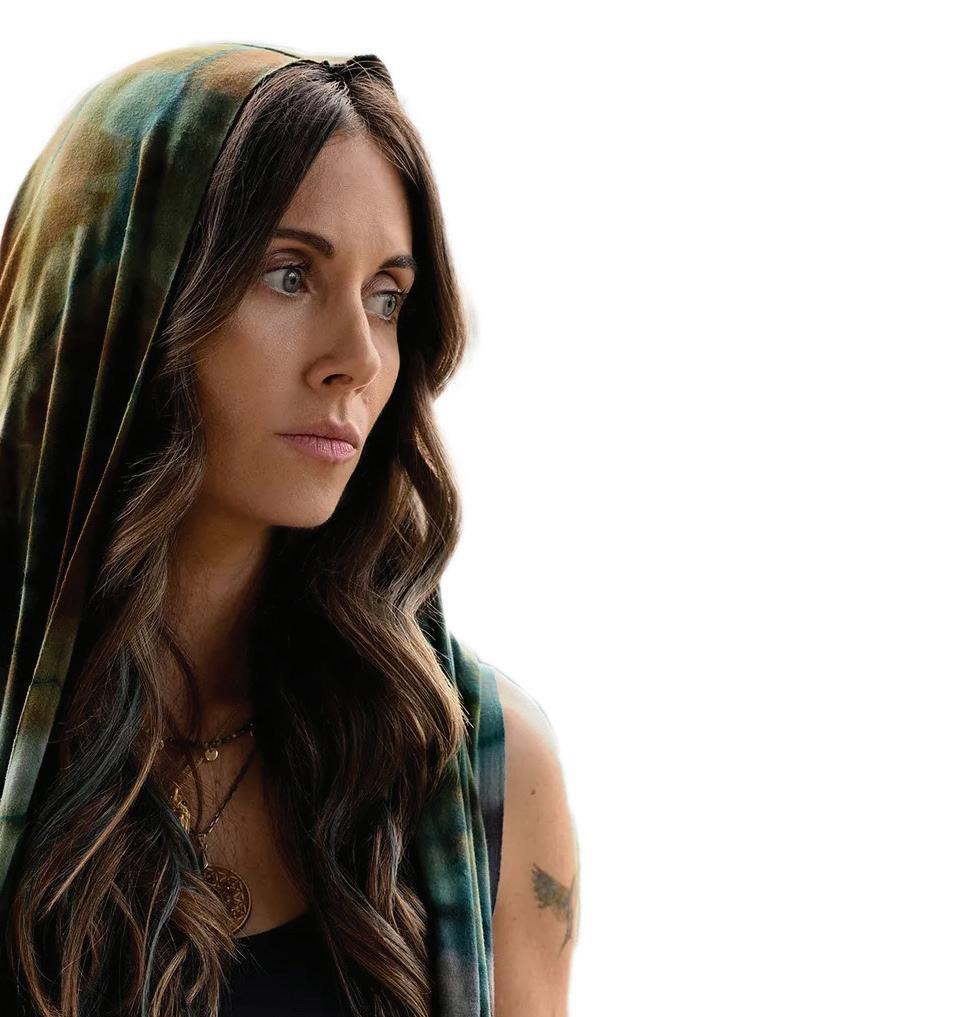

adult eyes and see if it still has the same effect on me or if I’m looking at it differently,” says Naegle, who admits the buzz around a hotly tipped new novel can be hard to ignore.
at it differently,” says Naegle, who admits the buzz around a hotly tipped been doing it long enough and

Apples Never Fall
“Sometimes there is a competitiveness that can condition you to like something more because there’s competition. But I’ve been doing it long enough and reading long enough that I can take myself out of that,” adds the former chief content officer at Annapurna Pictures, who set up DPP earlier this year alongside Krug.

“Our job is to buck trends in many ways,” continues Springborn. “The entire industry is created around following trends, and where we’ve been most successful is zigging where people have zagged. Sometimes
industry is created around following trends, and where




During this year’s Edinburgh TV Festival, Sherwood writer James Graham warned of “a danger that a whole generation of young people are simply not introduced to longform storytelling” due to the popularity of platforms such as TikTok.

shows like Anatomy

While Springborn agrees such platforms hold sway with young audiences, examples such as her own 12-year-old daughter highlight how shows like Gilmore Girls, Modern Family and Grey’s Anatomy are still being discovered, albeit online and a million miles away from linear television.




attracted to. It reflects their world, right? Just as the shows I grew up with reflected my world,” she says.

“It’s on us to continue to have a dialogue with that generation and understand what they’re attracted to. There is something in the shortform that they’re attracted to. It reflects their world, right? Just as the shows I grew up with reflected my world,” she says.



“So it’s more about us tapping into some of those things they’re struggling with or connecting to and creating longform that appeals to that. It’s more about the material versus the form.”


about the material versus the form.” industry “transition” from the current dispiriting period of cuts


Meanwhile, Naegle believes the industry will “transition” from the current dispiriting period of cuts and contraction on both sides of the Atlantic into a brave new world.







and will continue to be enjoyed. How much of it

“People love television. It will continue to be made and will continue to be enjoyed. How much of it is made, what it looks like and in which countries and in which configurations is yet to be completely determined, because it does feel like we’re moving through something,” she says.